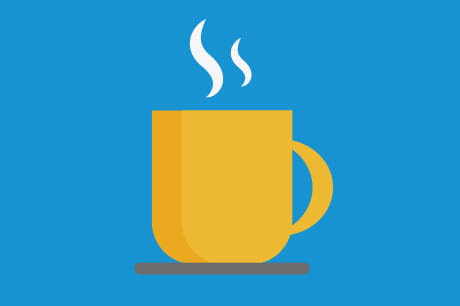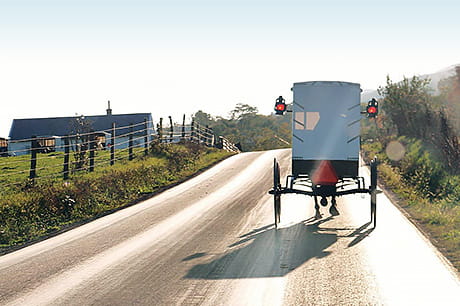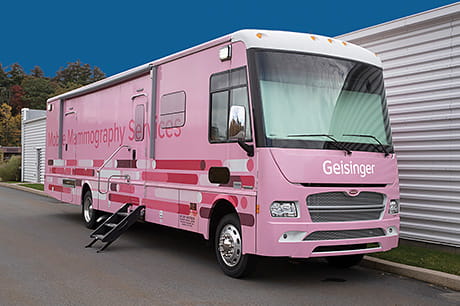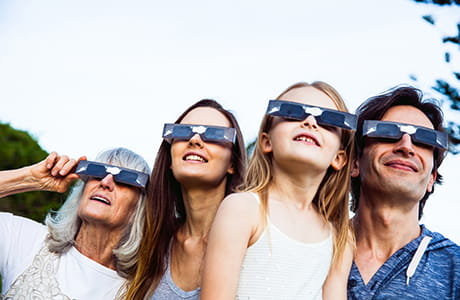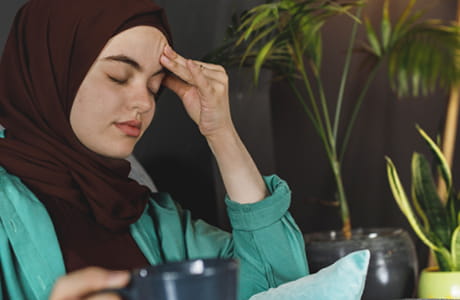How much caffeine is too much?
Alert is great. Jittery and irritated, not so much. Here’s what you can change.
Mornings are a time for fresh starts and new beginnings. And there’s no better time for that first sip of coffee — at least for two-thirds of Americans, according to the National Coffee Association.
In moderation, caffeine provides benefits like increased alertness. There are even studies that suggest potential heart health benefits and lowered blood pressure.
But if that cup of coffee is the first of many, could you be overdoing it? Whether you’re getting it from coffee, soda or dietary supplements, too much caffeine could give you the jitters rather than a jolt.
“Caffeine can be a part of a healthy diet, especially when it’s consumed in moderation,” says Robert Watterson, MD, a Geisinger internal medicine physician. “Everyone reacts differently, but consumption above 400 milligrams is typically when people feel the side effects.”
That might seem like a lot, but energy drinks and store-bought coffee can contain half of that in one serving. To determine how much caffeine is too much for you, observe how you feel and document your intake.
What are the side effects of too much caffeine?
Everyone hits a midday slump once in a while. Whether that comes from a lack of sleep or an exhausting schedule, you may be tempted to grab a cup of coffee or an energy drink to power through. But overdoing it could leave you feeling nervous, paranoid or agitated.
“Caffeine has positive effects, like helping us stay focused and alert,” says Dr. Watterson. “But if we have too much too quickly, the effects turn unpleasant and can put our health at risk.”
The signs you’ve had too much caffeine include:
- Jitters
- Shakiness
- Anxiety
- Fast heart rate
- Nausea
- Sleeplessness
- Paranoia
- Agitation
“Because caffeine is a stimulant, it increases levels of serotonin and norepinephrine,” says Dr. Watterson. “In moderation, you can feel alert and acute euphoria. But if you overdo it, you’ll feel anxious and possibly sick.”
Keeping track of how you feel after having caffeine is the first step to knowing your limits. While the FDA suggests having less than 400 mg daily, it may only take one cup of coffee for you to feel the same way as someone else who drinks six cups. It affects everyone differently.
Is caffeine overdose a real thing?
If you’re drinking coffee, soda or energy drinks, a caffeine overdose is highly unlikely. You’d have to drink about 28 cups of brewed coffee to reach those dangerous levels.
However, you should use caution with caffeine powder and supplements. The caffeine in 28 cups of coffee is equal to one teaspoon of pure caffeine powder.
“Caffeine powder is often used in athletic circles or marketed as a weight loss supplement,” says Dr. Watterson. “Pay attention to how much you’re using and always consult your doctor.”
If you do use powder, make sure to clean up any spills. Children and animals are sensitive to caffeine, and even a small amount in powder form can be fatal if ingested.
And be sure to ask your doctor or pharmacist if any of your medications interact with caffeine.
“Caffeine is a drug, and it interacts with several commonly prescribed medications, including atomoxetine, bupropion, ciprofloxacin, clozapine, linezolid, lithium and tizanidine,” says Dr. Watterson. “Thankfully, moderate caffeine consumption — no more than one to two cups of coffee per day — is unlikely to lead to serious drug interactions.”
What has the most caffeine?
Moderating your intake starts with knowing where you’re consuming caffeine.
Coffee
Eight ounces of brewed coffee has around 80 to 100 milligrams (mg) of caffeine. While this doesn’t seem like a lot, its effects can add up as you have more cups throughout the day.
Energy drinks
Some popular brands of energy drinks have anywhere from 40 to 350 mg of caffeine per serving. Check the nutrition label to keep track of how much you’re consuming.
Tea
A cup of black tea typically has 30 to 50 mg of caffeine. Other varieties, like white or green tea, tend to have less.
Soda
Although it has less than a single cup of coffee, some cans of soda have 30 to 55 mg of caffeine, depending on the type.
Chocolate
Drinks are the typical caffeine culprits, but don’t forget chocolate. A bar of dark chocolate (roughly 100 grams) has about the same amount of caffeine as a cup of coffee. Dark chocolate has more than milk or white, and chocolate-flavored foods like cakes, cookies and brownies have less than actual chocolate.
How to cut back on caffeine without withdrawal symptoms
Looking for a better way to stay energized throughout the day? There are plenty of options to cut back on caffeine without the unpleasant side effects.
“Whatever you do, don’t quit cold turkey,” says Dr. Watterson. “Your body is used to having caffeine, so when it doesn’t get it, you’ll get headaches and may feel agitated. Try tapering off and reducing your intake gradually over weeks.”
Many find cutting back over time an easy process, but you might still crave a warm cup of joe. While decaf coffee contains less caffeine, it still has about two to 15 mg per eight ounces.
Another option is swapping coffee for tea. This can help you lower your intake while still having something to sip on.
“Coffee is tricky because it becomes a ritual,” says Dr. Watterson. “It’s usually how we start our day and can become an ingrained habit. I recommend tea for anyone trying to lower their caffeine intake. You can still have a little milk or sugar in your tea, and it gives you a moderate amount to start your day.”
Reap the benefits, not the side effects
Moderation, in all aspects of life, is typically rewarded. For daily caffeine intake, up to 400 mg a day is safe — and maybe even beneficial. If you’re interested in using powder or you’re worried about interactions with other medications, talk to your doctor.
Next steps:
Find out how much water you should be drinking
Can you drink coffee while pregnant?
Eye twitching? It could be too much caffeine
